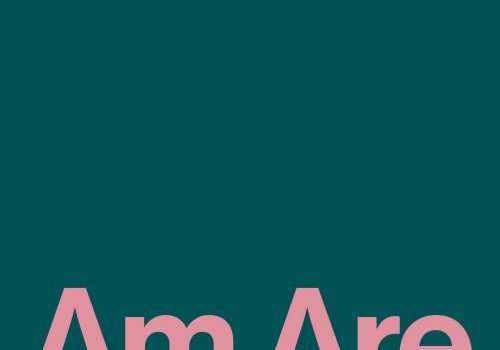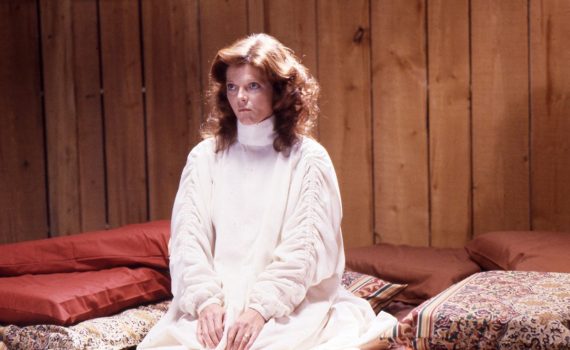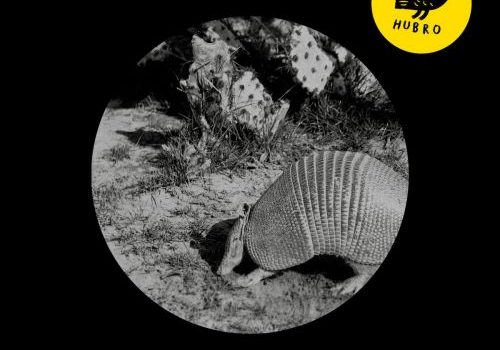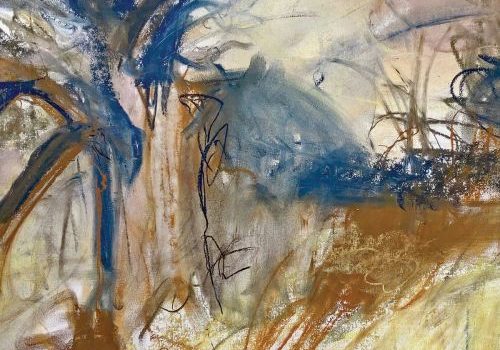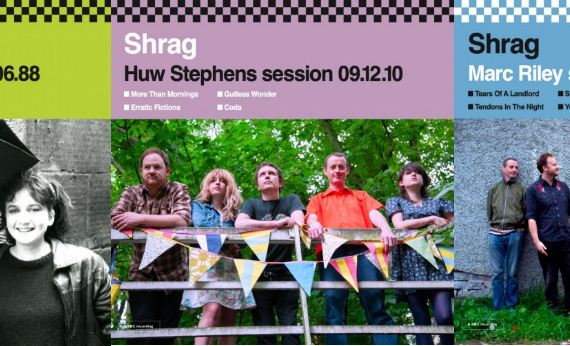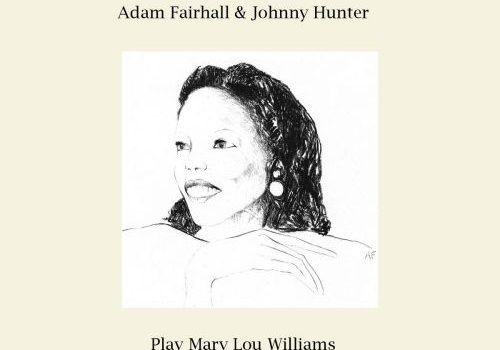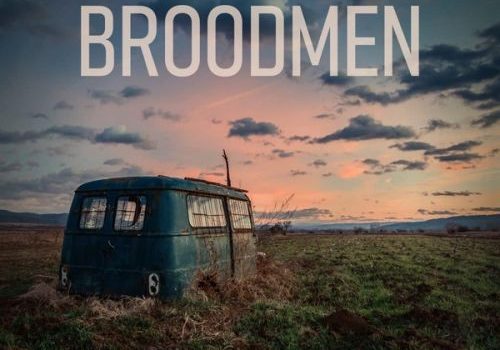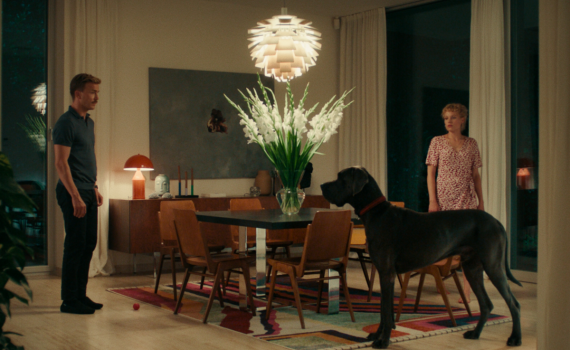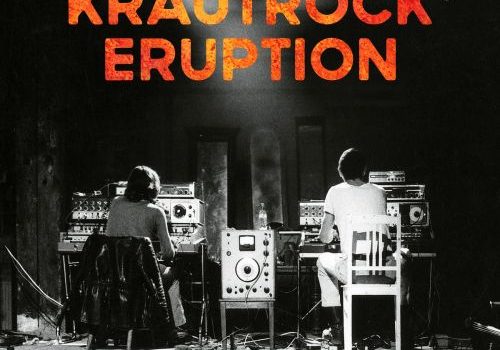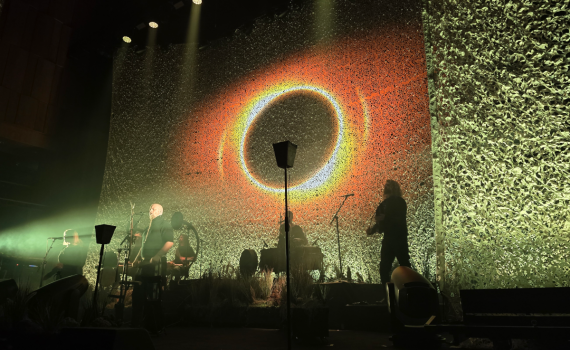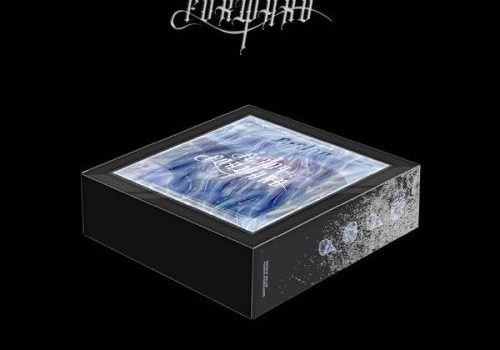The title of the latest Am Are reflects 2022's Be Am, but is almost the antithesis of that light piano conversation with himself. Here, the ten tracks presented are made up of sessions with four different trios as well as a solo piece, a duo and a vocal track. It feels as though he has gone to the pub and it is filled with different groups of friends that are intent on different conversations, and he is flitting around like a social butterfly, dipping in here and dipping in there.
reviews
Recorded in Spain, away from their now globally-scattered homes, the group’s extended latter-day line-up, built around -- but not subservient to -- the long-running core membership of Jon Langford, Sally Timms and Tom Greenhalgh, have delivered an eclectic exemplar of well-matured musical mind-melding.
Perhaps because of other commitments, Behind Closed Doors is only her third album since 2014 and although coming from a place of loss and sorrow, still manages to sound uplifting and vivacious. The core quartet of violin, piano, bass and percussion is augmented across the seven tracks by vibes, trumpet, lute, oud and the resonant voice of Stratis Skarakis to ensure a varied and satisfyiong journey.
Using the likes of Hardanger fiddle, mouth harp and langeleik, the duo seems to have taken it upon themselves to take original recordings of these venerable pieces and manipulate them to their own ends, then thrusting them into a modern environment to see how they might exist amongst their younger siblings.
Second Sight WARNING — contains spoilers for Scanners, The Brood and also (oddly enough) Nightbreed. My first introduction to the work of David Cronenberg may not have been ideal, but it was probably fitting. It was through that classic promo shot of a dude with his head exploding from Scanners, in the pages of a much-thumbed copy of (I think) Starlog which got breathlessly passed round my classroom […]
It has been seven years since Building Instrument's previous album, not that the three members have been quiet in the downtime. Mari Kvien Brunvoll was involved in last year's Barefoot In Bryophyte, while Øyvind Hegg-Lunde has been involved with Erlend Apneseth and Electric Eye, among others; but when they and Åsmund Weltzien reconvene with their combination of glockenspiel, electronics, subdued beats, found sounds and dreamy vocals, you know that there is magic in the air.
The story behind this live album is quite a poignant one, with guitarist Billy Marrows originally writing the studio album Penelope as a legacy to his mother, who was dying of cancer. Thankfully, she heard some of the pieces before passing, but as a further memorial and as a way of raising money for charity, he chose to bring together a twelve-piece band to do full justice to the songs and perhaps to enable something beautiful to be wrung from such a sad circumstance.
Nick Godfrey’s Precious Recordings label continues to be one of the most reliable historical route-finders for visits inside the BBC vaults, in parallel to promising recent forays into releasing new recordings. From such navigation, fresh archival spotlights are put upon the familiar and near-famous, as well as those previously misplaced in the mists of musical time. Enter then, three 10-inch EP platters -- bolstered by bonus digital content -- from the latter camp.
Pianist Adam Fairhall has had an interest in her career since he was a youngster, and after performing one of her pieces at a show was approached by Martin Archer to record and album's worth of pieces spanning her oeuvre. With the accompaniment of Johnny Hunter on snare drum, he has handpicked a selection of ten numbers that shed light on the career of a unique player who was clearly happy in any jazz style.
Dutch trumpeter Ian Cleaver has put together a quintet for whom the sounds of Louis Armstrong and Chet Baker and the arrangements of Nelson Riddle are something to aspire to. With fine accompaniment from bass, drums, piano and sax / clarinet, his sweet, smoky trumpet tones are cast adrift evoking the sort of dancefloors where snappily dressed characters move sharply, cigarettes aloft and smiles beaming.
Back in 2021, when the geographically challenged duo reconvened for some live action, they also involved accordionist Lazar Novkov and Broodmen was stretched to a trio, the sound changing again as the accordion, at times melancholic and at others joyful, set them on a new trajectory. Recorded live in a single session, Liminality explores the pushing of boundaries, the interaction of disparate sounds and the sheer thrill of playing live and seeing where it may lead.
Bernhard Wenger’s debut feature is a really strong first film, even if it never quite shakes off convention the way it would like. Matthias (Albrecht Schuch) is an actor. Sort of. He is, in effect, an actor for real life scenarios. Single but need a convincing boyfriend to get that couples-only flat? Hire Matthias. Need a pilot for a dad so you’ve got the most exciting parent at class career day? He’s right there.
Dipping just a toe into the DIY electronica streams these days still requires some weighty waders to avoid being soaked by the volume of material. Hence, another amalgamated approach is needed to fish for some of the most notable new wares.
...here we have a compilation of artists that maybe seen on the periphery in some cases, but were equally as important to shaping the sounds of the era, and some even having a greater influence on the German underground music that followed than the bigger bands.
The arresting hugeness of a projected bird's eye breaks the darkness of the stage as Wardruna’s harmonising voices rise to a regularised patter, punctured by a defiant shell-like crunch. A sound that grows on a waltzing mirage becoming equally huge as the silhouetted band is suddenly thrown into illuminated focus.
So what business do they have deploying experimental music under the radar? Well, it’s all in the name: NMIXX — (Pick) NMIXX, if you will? This approach in their first single, “O,O”, wasn’t immediately embraced by audiences and critics. Multiple shifting styles and frequent unexpected jump-cut changes weren’t easily digested, even by an audience that has come to expect split-second editing in both music and videos.
...singer Owen Williams is doing quite well with the latest Tubs album, but where that tends to take as its starting point the classic British indie sound of yore, to my mind, Ex-Vöid looks more across the pond, aligning itself with the kind of flurrying '90s indie purveyed by the likes of Velocity Girl and Tsunami, but containing the essential melancholy that comes with a British perspective.
Whilst such output has fleetingly tipped the hat to his formative enterprise along the way and Galaxie 500 songs have regularly reappeared in recent solo ensemble live shows, it’s taken until now for a fuller recorded reconnection with the most atmospheric elements of the hallowed group’s aural palette.
